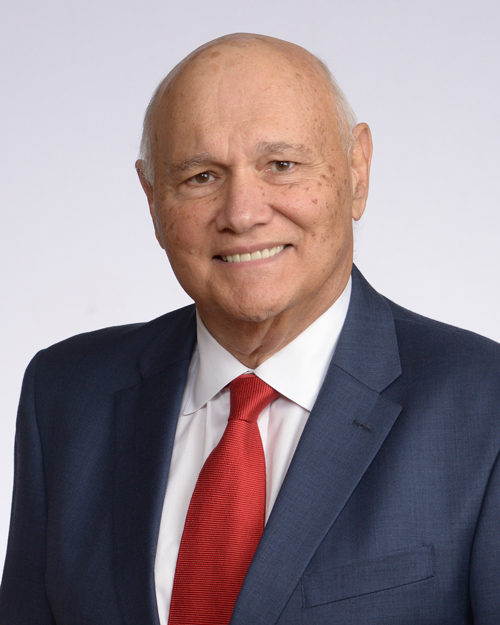In my experience, plaintiffs’ attorneys underutilize opposing medical expert depositions. Despite their potential to uncover weaknesses in the defense’s case and to clarify complex medical concepts, many plaintiffs’ attorneys forgo them. Whether they choose to forgo these depositions because of cost concerns, time constraints, or a belief they’re unnecessary, plaintiffs’ attorneys put themselves at a disadvantage when they do so.
That’s because there are six significant benefits that can be realized when they depose opposing medical experts.
Benefit #1: Depositions Limit Medical Experts’ Opinions
When plaintiffs’ attorneys do not depose a medical expert, they go into trial blind. While they will have a general idea of the subject matter, the expert will testify based on their report, and a plaintiff’s attorney will not know the contours of the expert’s opinion. If an expert has not been deposed, they may provide answers at trial that not only surprise a plaintiff’s attorney but torpedo their client’s case.
But when plaintiffs’ attorneys depose a medical expert, they box in their potential trial testimony. With the right line of questioning, a plaintiff’s attorney can learn the four corners of the expert’s opinion—and confine them to it at trial. For example, asking “Are there any opinions you have not expressed on this matter?” during a deposition will minimize the chances at trial that the expert offers testimony the plaintiff’s attorney had never heard before. Because judges will generally not permit medical experts to testify at trial about any opinions beyond those they expressed in their reports and during their depositions, plaintiffs’ attorneys can box medical experts into relatively limited opinions by taking their depositions.
Benefit #2: Depositions Allow for Thorough Questioning of Medical Experts Early in the Case
Depositions give plaintiffs’ attorneys an opportunity relatively early in a case to question a medical expert thoroughly. This allows the attorney to find potential holes in the expert’s testimony or recollection of events, or, on the other hand, to elicit testimony potentially damaging to their client’s case well before trial so they can adjust their litigation strategy accordingly.
Additionally, a plaintiff’s attorney can question a medical expert about their examination of the plaintiff in an effort to cast doubt on the credibility of the expert and the persuasiveness of their examination. Questions such as “Who was present at the examination?” “How long did it take?” “How many patients did you see that day?” and “Were you at any point running behind schedule?” could elicit testimony that makes a jury question whether they can trust the expert’s examination.
Of course, a plaintiff’s attorney can also compare the answers they elicited during a deposition to what the defense has said about the nature and scope of the examination to generate doubts about the defense’s claims.
Benefit #3: Medical Experts Help Attorneys Limit the Universe of Important Documents
Personal injury claims require plaintiffs’ and defense attorneys alike to examine medical records to determine a plaintiff’s relevant medical history, past conditions, and medical treatments. Sometimes, these medical records can be voluminous and may often contain irrelevant information. Attorneys on both sides of the case are required to know these medical records inside and out, but even the most diligent attorneys can sometimes overlook key details in medical records.
When sitting for a deposition, medical experts will cite the specific records supporting their opinions and contentions about the injuries. In fact, plaintiffs’ attorneys should ask an expert to cite the chapter and verse the records that support their contentions. By doing so, the expert helps all the attorneys in the case focus on the medical records that are most important in the case. This aspect of a medical expert’s deposition acts as a cost-effective fail-safe for the attorneys in the case by limiting the universe of the most important documents and highlighting any important documents they might have missed.
Benefit #4: Depositions Provide Valuable Intelligence About Potential Collateral Attacks
If a medical expert is new or unknown to a plaintiff’s attorney, a deposition provides an opportunity for the attorney to get a sense of where they can collaterally attack the expert at trial. By questioning the expert about their background, their bias, their involvement as a regularly testifying witness, and other topics, the attorney can determine where the expert might be vulnerable from a credibility or trustworthiness standpoint.
Plaintiffs’ attorneys can use a medical expert’s deposition to “get a book on the expert,” especially regarding their education, their training, and their specialization. Does the expert have the credentials to credibly discuss what caused the plaintiff’s injuries? How many times did the expert perform the same procedure that is at issue in the case? Are they certified? What kind of training do they have?
By uncovering these areas for collateral attack during a deposition, a plaintiff’s attorney has more time to develop a litigation and trial strategy that exploits a medical expert’s vulnerabilities.
Benefit #5: A Deposition Previews a Medical Expert’s Potential “Stage Presence” at Trial
On a related note, when deposing a medical expert, a plaintiff’s attorney can determine what kind of “stage presence” a medical expert might have, particularly regarding their nonverbal communication.
How did the expert come across? Cool and collected, or fiery? Were they persuasive, no matter what topics they were discussing, or were they unconvincing? Did they have charisma that could play well with a jury, or did they bumble through their answers, coming across as someone a juror would have a hard time trusting?
By previewing a medical expert’s stage presence during a deposition, a plaintiff’s attorney can construct their direct or cross-examination at trial accordingly to either prevent the witness from putting on a charm offensive or to highlight the witness’s difficulty connecting with jurors.
Benefit #6: Depositions of Medical Experts Help Plaintiffs’ Attorneys Reassess Their Litigation and Trial Strategies on the Fly
As the other five benefits show, medical expert depositions provide information that helps plaintiffs’ attorneys reassess their litigation and settlement strategies on the fly to ensure they are still pursuing a meritorious case that could lead to a favorable outcome and significant damages for their client.
For example, during their deposition, a medical expert could make a plaintiff’s attorney aware of a prior injury to, or a prior treatment of, the same body part the plaintiff claims was injured because of the defendant’s negligence. Even if the plaintiff simply forgot about that injury or treatment, this oversight could be fatal to their claims. However, because the medical expert’s testimony came during a deposition, the plaintiff’s attorney has time to work around this issue. If this testimony was first elicited at trial, the attorney might be at a loss on their feet as to how to recover from that potentially fatal blow.
Generally, the testimony a medical expert provides during their deposition can cause a plaintiff’s attorney to alter how they were planning to present their client’s case at trial. The testimony could cause a plaintiff’s attorney to reevaluate one aspect of their case or the entire case, including whether their proofs are substantive and persuasive. A deposition also gives the plaintiff’s attorney an opportunity to vet the expert’s proofs that they weren’t aware of previously and to alter their own proofs as a result, if the expert’s proofs could win the day.
Plaintiffs’ attorneys should not ignore the benefits of taking a medical expert’s deposition.
In my four (plus) decades as a civil trial attorney, I have seen plaintiffs’ attorneys routinely underutilize medical expert depositions. Given the six benefits they could realize from taking a medical expert’s deposition, they would be smart to reconsider their approach.
Stephen F. Lombardi is Managing Partner of Lombardi & Lombardi, P.A., a leading New Jersey personal injury, workers’ compensation, and employment law firm effectively representing the legal needs of its clients since 1975. He can be reached at StephenL@LombardiandLombardi.com.
Reprinted with permission from the February 5, 2025, edition of the New Jersey Law Journal © 2025 ALM Media Properties, LLC. All rights reserved. Further duplication without permission is prohibited, contact 877-257-3382 or reprints@alm.com.










